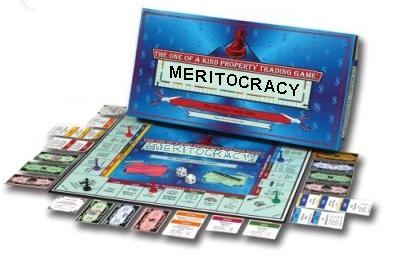Today I attended a workshop as part of the annual Games for Change conference. G4C explores ways that people can use computer games to effect positive social change.
In the workshop we formed into small groups to try our hand at designing potential games for change, based on the brilliant values-based Grow-a-Game Cards approach developed by Mary Flanagan and Helen Nissenbaum. I contributed an idea that our group ended up going with. Actually, I asked the other group members if it would be ok for me to hijack the group agenda for my own purposes, and everybody said that was just fine.

Unfortunately, the person who later presented our game got nervous and didn’t convey it properly. One nice thing about having a blog is the way it can help to keep an interesting idea from getting lost. So please indulge me while I try to rescue my crazy proposal.
The basic notion is this: A member of the group had mentioned an upscale Connecticut community whose residents argue that they shouldn’t have to share their resources (eg: money for schools for kids) with less affluent communities. I proposed to build a game which demonstrates that this philosophy could eventually lead to a nation’s ruin.
In particular, I claimed that the economic self-interest of a nation-state is best served by identifying and nurturing the talents of its children, so that those talents can be turned toward increasing the economic wealth of the nation itself. In each generation a certain number of children are born with unusual natural gifts for engineering, or medicine, science or artistic expression. If those kids’ minds are not nurtured within the first seven years of their life, much of that talent is irretrievably lost.
I would argue that a nation’s best “selfish” capitalist strategy, particularly given the competitive pressures of a global economy, is to identify as many of those kids as possible. In a society with entrenched social inequality, a large percentage of those talents will be lost, through substandard housing, education and healthcare. Society never gets the benefit of that potential Einstein or Edison of the next generation.
We proposed to build a game along the lines of “God games” like SimCity or Civilization, but in which a player’s potential resources would come from the random occurance of particularly bright little minds, which if properly nurtured would increase economic wealth in specific ways for any community that contained them.
A player who adopts the strategy of throwing all resources into wealthy enclaves would be able to make short-term gains, but would find that there just weren’t enough bright minds showing up in each generation to sustain maximum growth over time.

I wanted to call the game Meritocracy, but I was out-voted. The group ended up calling it A Leader is Born, which I thought was a bit misleading, since most of the benefit would come from kids who didn’t grow up to be leaders, so much as small-scale economic powerhouses.
BTW: the word “meritocracy” also has a negative meaning (cf. Michael Young’s original coinage of the term in his 1958 book The Rise of the Meritocracy), in which a privileged class hordes resources, justifying its actions by pointing out that its kids are the brightest and most capable. Which is a self-fulfulling prophecy, since these kids become exposed to better education, superior health care and greater opportunities, as well as growing up with higher self-esteem. I would argue that this is a false meritocracy, which actually keeps a society running at only a fraction of its economic potential – which would become clear when playing the Meritocracy game.
I also argued in the group discussion that properly nurtured talented minds in poor communities are actually more economically beneficial to society than are bright young minds that show up in wealthy communities. This is because it is more liketly that talented kids from poor communities will relocate to places where they can help improve local economic potential, whereas rich people generally try not to migrate socially downward. So the talent that a game player can identify and nurture in the next generation of a poor community is actually more valuable for increasing the nation’s wealth over time.
Pretty much all of this got lost in the presentation; we picked one spokeperson, who I think became flustered. Most of the ideas I described above did not come across in her presentation, not even the core idea that gameplay would span multiple generations.
But there is no reason I can’t take back my little Meritocracy game, and use these blog pages to develop it properly. I’m happy to hear any and all suggestions. After all, this blog is a meritocracy!
This is different than the “No Child Left Behind” philosophy of education. In that system, no effort is spared to help the least successful students reach a minimum competency level. The brightest, it is assumed, will do fine no matter what.
“No Child Left Behind” always reminded me a little of “Harrison Bergeron.”
There are studies that show when a teacher was told students were gifted, then the students performed better. When a teacher was told students were not gifted, they did worse…
A good book illustrating the negative “meritocratic” mentality is Jonathan Kozol’s Savage Inequalities. He chronicles schools in some of the worst, and best, parts of the country. When he talked about how there are industrial areas in some cities that incorporated so they wouldn’t have to pay school taxes, it made my blood boil.
You could probably get some good scenarios from the book for your game.
Update: the person in the group who specifically recommended making it like SimCity is Michael Sklaar (I didn’t know his name when I wrote the post).
Although a board game might work quite nicely. My life as a child seemed to be a gradual transition up to Monopoly from Candyland. My loss of innocence, in a way.
Great idea and the idea for the game itself sounds like conversations I’ve had with others here and there so the concept is on the Collective Mind at least unconciously.
Have you thought about reworking Meritocracy not as a linear board game but rather — I’m trying to be coherent which isn’t easy for me — a RPG in which the player is plunged into a world/community which exists AFTER the rich have gotten the rules rewritten so that they don’t have to contribute to the entire community at large? Sometimes lessons are better learned when there is a greater mystery making a discovery which leads to an answer of why there is a royal SNAFU. I know that I always like to be plunged into a situation in medias res.
Or have I just suggested you write a NOVEL?
I like your idea and I take it that you intended it for a computer game.
I have always been intolerant of how quickly people are willing to throw away the potential of whole communities because they for some reason or other do not meet some expected standards.
My suggestion would be to start it of as a simple web game where you could run your civilization, or lack there of, in competition to other civilizations.
It would be very interesting to do the algorithms behind the accumulation of merits based on players strategy. If done properly and in an informative enlightened way then I would expect that most would learn something from playing it. Also the game developers.
Meritocracy is an excellent name it makes you think and is provocative in this context.
I would enjoy participating in making such a game! If you need an extra programmer.